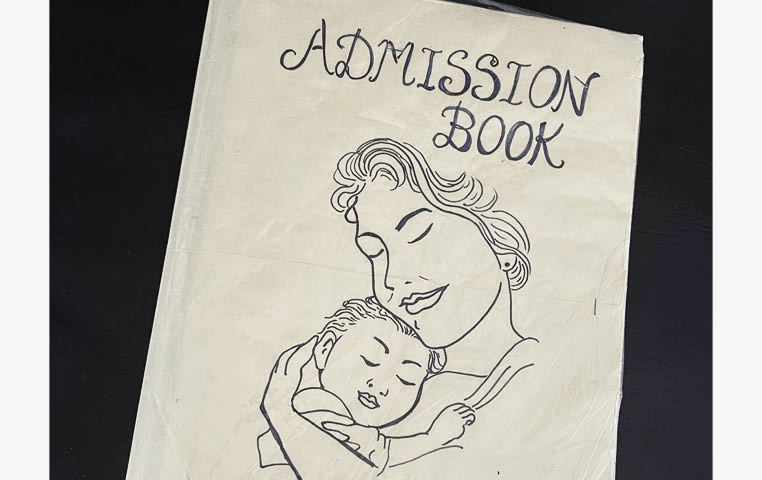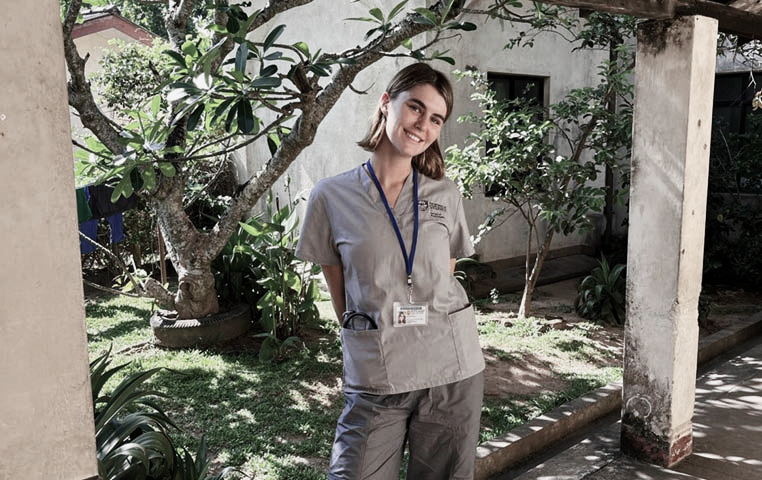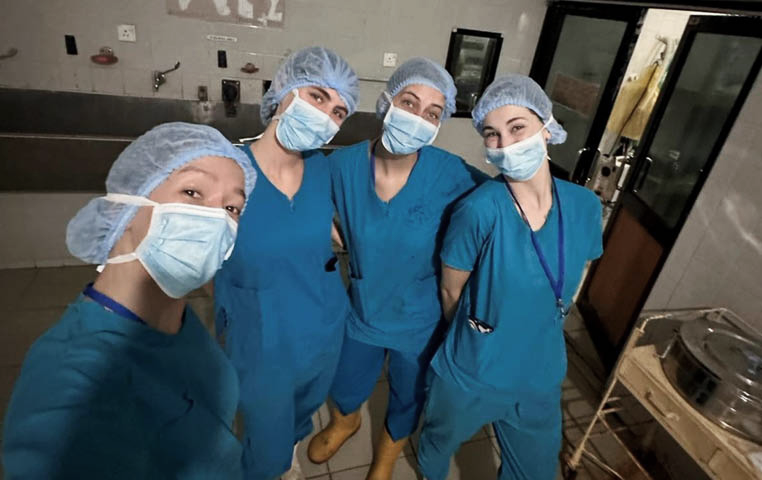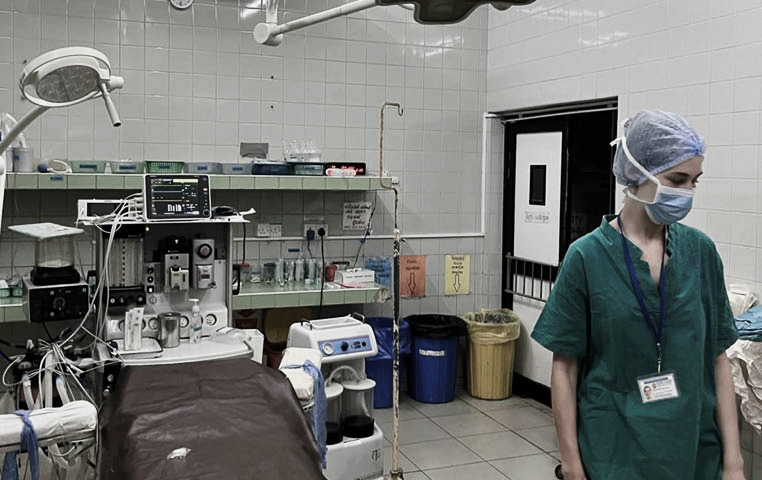Student Banking Package
A banking package to help you through your final two years of study
This banking package includes an everyday bank account with an optional overdraft facility and a Platinum credit card packed with rewards and benefits.
Learn More
 The structure of obstetric care is much like the one we have in Australia, with antenatal and postnatal services delivered by a mix of nurses, doctors and midwives. The investigations, imaging and management plans are essentially identical to those in Australia, however the ease of attaining these services is limited by availability and financial constraints. The obstetric issues faced by patients were similar to those in Australia including things like preeclampsia, gestational diabetes and infection. The common pathologies I observed were reflective of the economic difficulties faced by poorer people in the country, namely malnutrition, iron deficiency, anaemia and fetal growth restriction. These were normal presentations on the ward. Vaginal delivery was prioritised for appropriate patients and almost always entailed episiotomies for nulliparous women. During my time there, I also never witnessed an epidural being administered. If necessary, women received caesareans for medical indications including breech positioning and multiple pregnancies, however elective caesareans based on patient preference were not offered due to a lack of resources. Contraception options were not discussed as openly as in an Australian setting, but were essentially the same - with most Sri Lankans relying on barrier methods due to cost-effectiveness. Most of the medicine that I saw in obstetrics and gynaecology in Sri Lanka is the same as in Australia; however, practice in Sri Lanka was influenced by availability of human and medical resources.
The structure of obstetric care is much like the one we have in Australia, with antenatal and postnatal services delivered by a mix of nurses, doctors and midwives. The investigations, imaging and management plans are essentially identical to those in Australia, however the ease of attaining these services is limited by availability and financial constraints. The obstetric issues faced by patients were similar to those in Australia including things like preeclampsia, gestational diabetes and infection. The common pathologies I observed were reflective of the economic difficulties faced by poorer people in the country, namely malnutrition, iron deficiency, anaemia and fetal growth restriction. These were normal presentations on the ward. Vaginal delivery was prioritised for appropriate patients and almost always entailed episiotomies for nulliparous women. During my time there, I also never witnessed an epidural being administered. If necessary, women received caesareans for medical indications including breech positioning and multiple pregnancies, however elective caesareans based on patient preference were not offered due to a lack of resources. Contraception options were not discussed as openly as in an Australian setting, but were essentially the same - with most Sri Lankans relying on barrier methods due to cost-effectiveness. Most of the medicine that I saw in obstetrics and gynaecology in Sri Lanka is the same as in Australia; however, practice in Sri Lanka was influenced by availability of human and medical resources.


